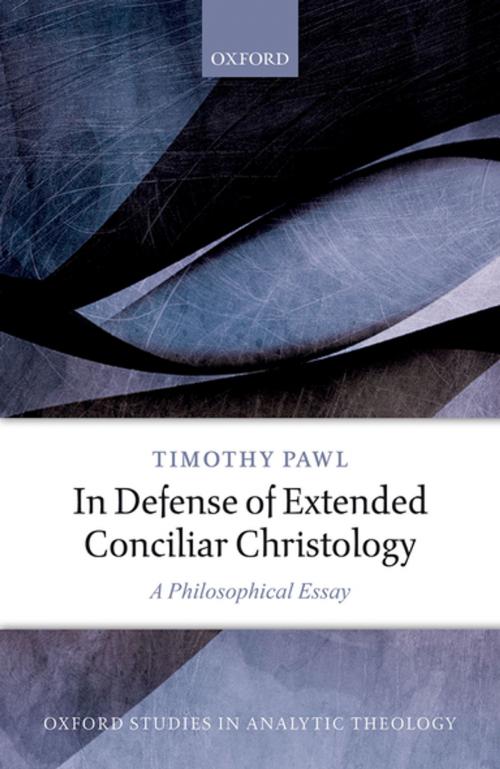In Defense of Extended Conciliar Christology
A Philosophical Essay
Nonfiction, Religion & Spirituality, Theology, Philosophy| Author: | Timothy Pawl | ISBN: | 9780192570888 |
| Publisher: | OUP Oxford | Publication: | December 13, 2018 |
| Imprint: | OUP Oxford | Language: | English |
| Author: | Timothy Pawl |
| ISBN: | 9780192570888 |
| Publisher: | OUP Oxford |
| Publication: | December 13, 2018 |
| Imprint: | OUP Oxford |
| Language: | English |
In Defense of Extended Conciliar Christology: A Philosophical Essay examines the logical consistency and coherence of Extended Conciliar Christology-the Christological doctrine that results from conjoining Conciliar Christology, the Christology of the first seven ecumenical councils of the Christian Church, with five additional theses. These theses are the claims that multiple incarnations are possible; Christ descended into Hell during his three days of death; Christ's human will was free; Christ was impeccable; and that Christ, via his human intellect, knew all things past, present, and future. These five theses, while not found in the first seven ecumenical councils, are common in the Christian theological tradition. The main question Timothy Pawl asks in this book is whether these five theses, when conjoined with Conciliar Christology, imply a contradiction. This study does not undertake to defend the truth of Extended Conciliar Christology. Rather, it shows that the extant philosophical objections to Extended Conciliar Christology fail.
In Defense of Extended Conciliar Christology: A Philosophical Essay examines the logical consistency and coherence of Extended Conciliar Christology-the Christological doctrine that results from conjoining Conciliar Christology, the Christology of the first seven ecumenical councils of the Christian Church, with five additional theses. These theses are the claims that multiple incarnations are possible; Christ descended into Hell during his three days of death; Christ's human will was free; Christ was impeccable; and that Christ, via his human intellect, knew all things past, present, and future. These five theses, while not found in the first seven ecumenical councils, are common in the Christian theological tradition. The main question Timothy Pawl asks in this book is whether these five theses, when conjoined with Conciliar Christology, imply a contradiction. This study does not undertake to defend the truth of Extended Conciliar Christology. Rather, it shows that the extant philosophical objections to Extended Conciliar Christology fail.















